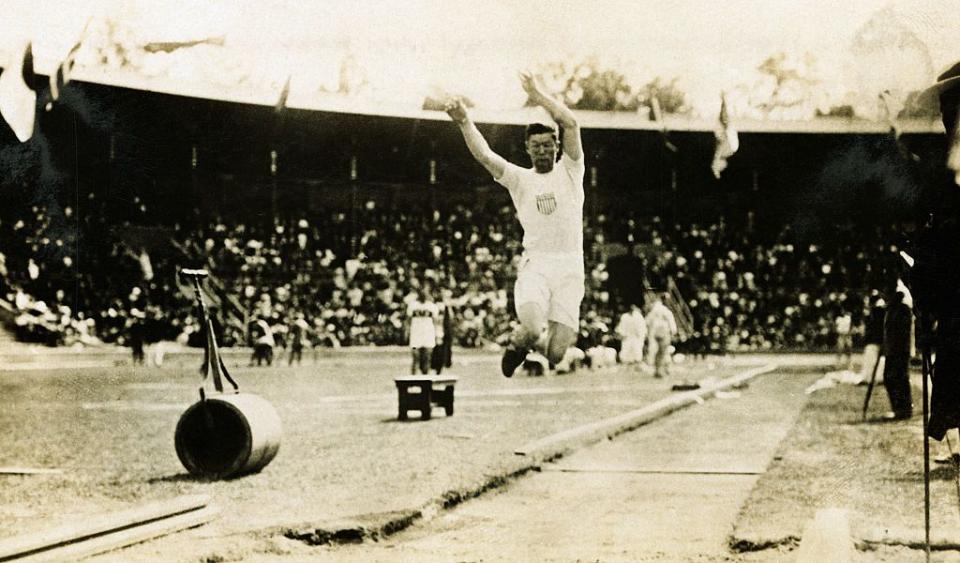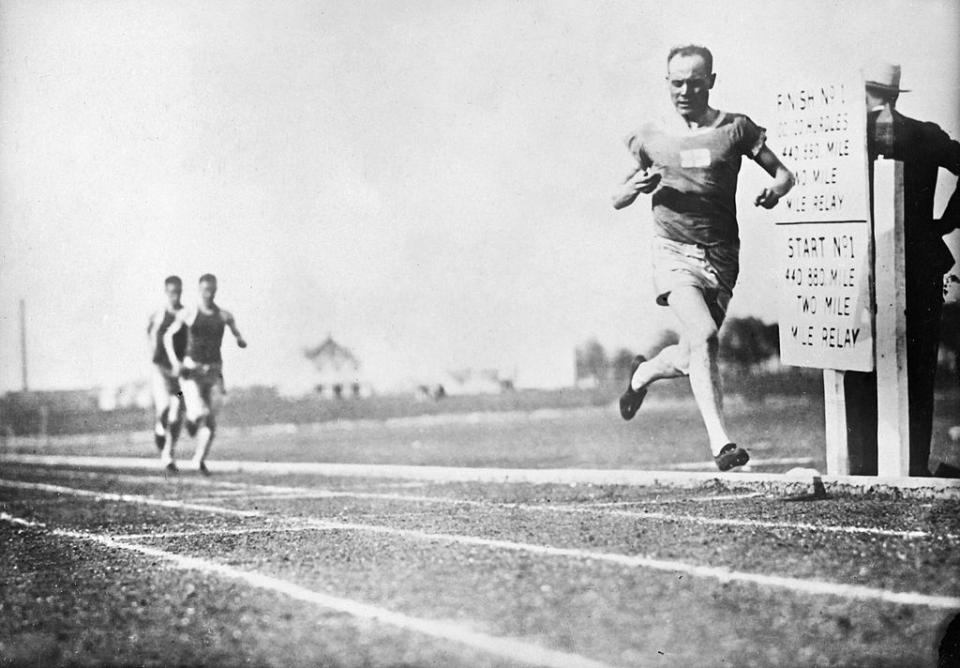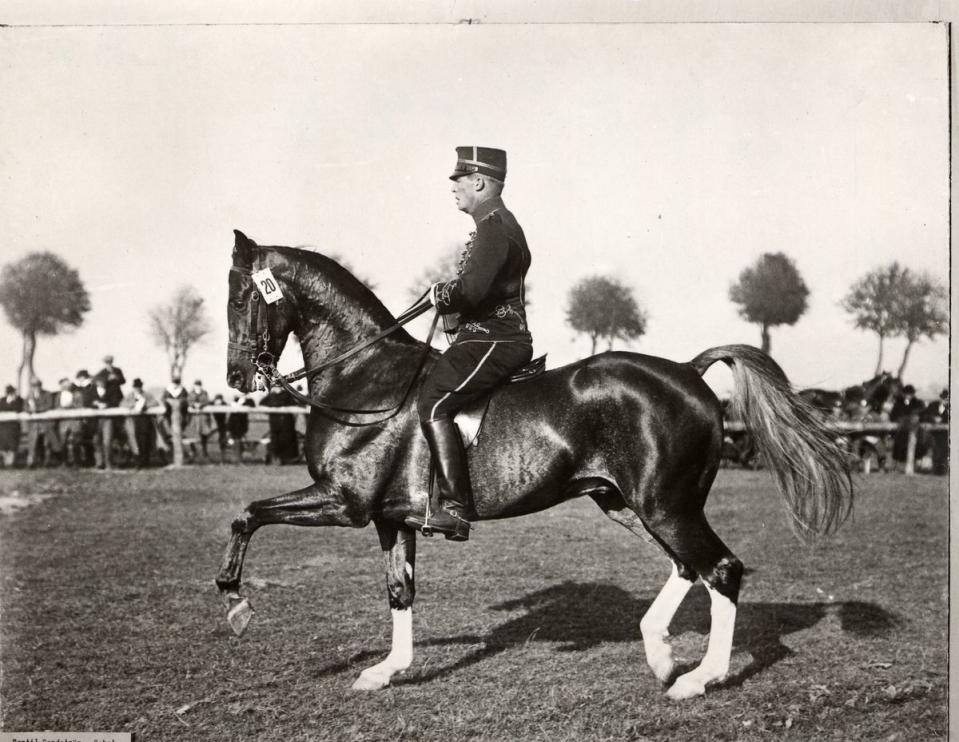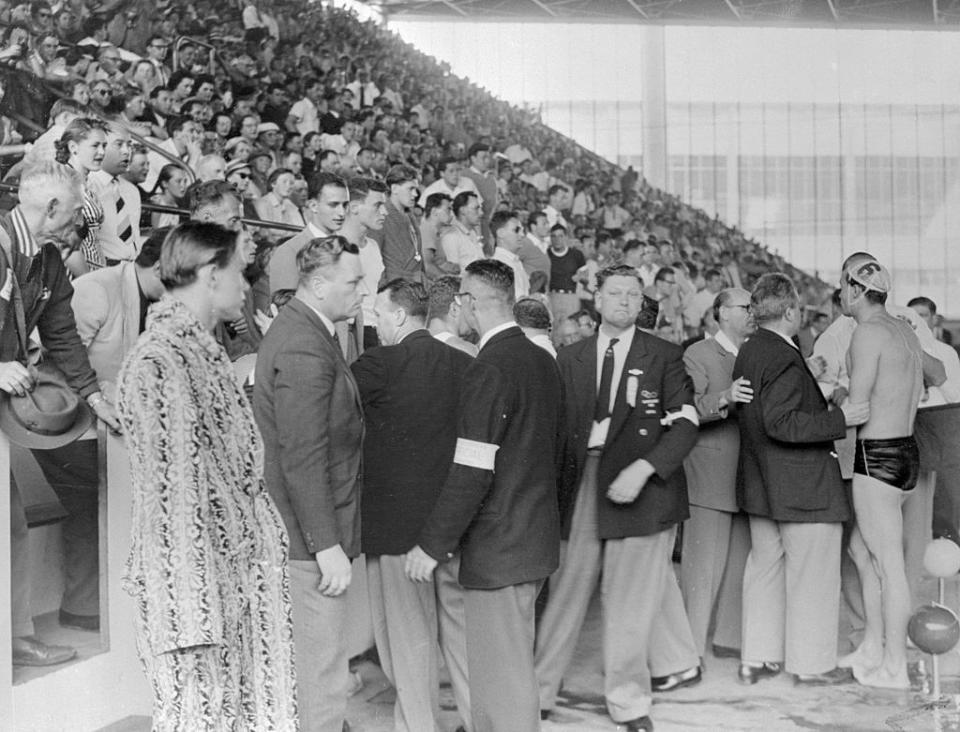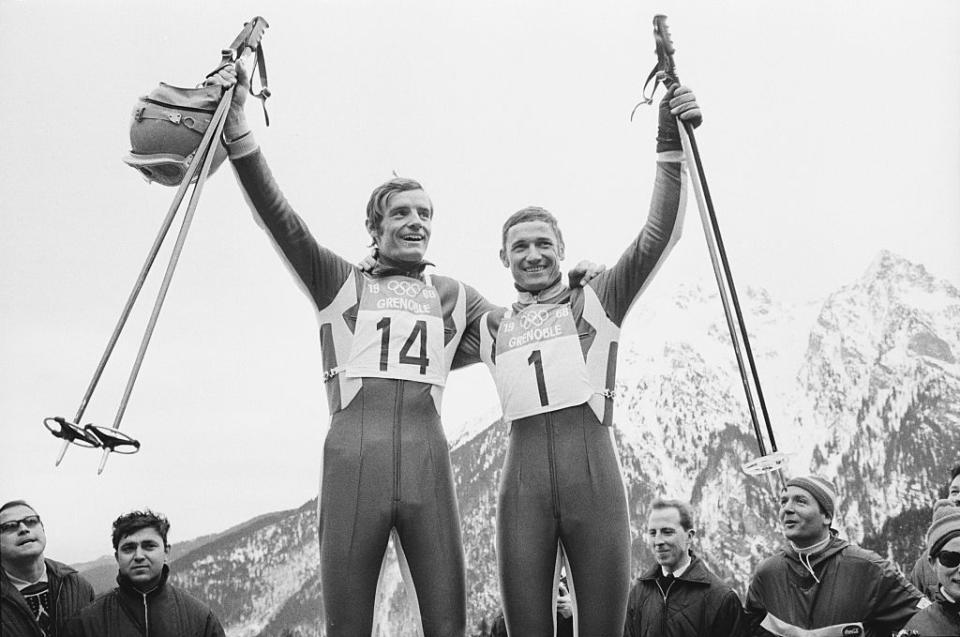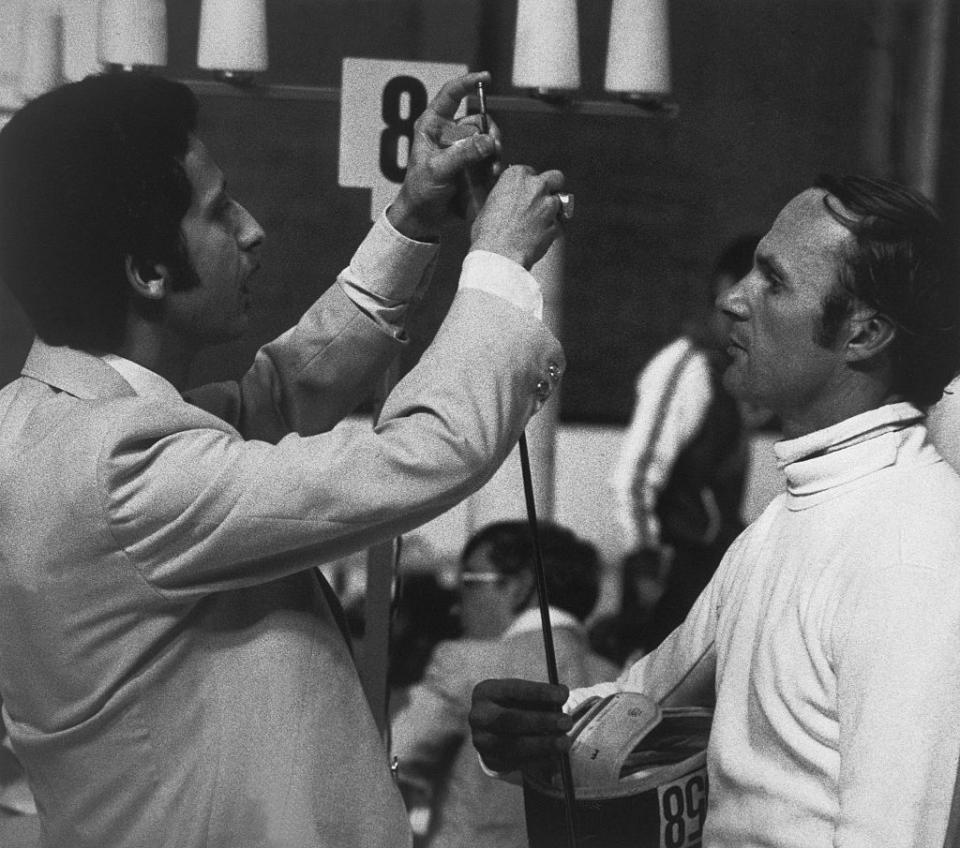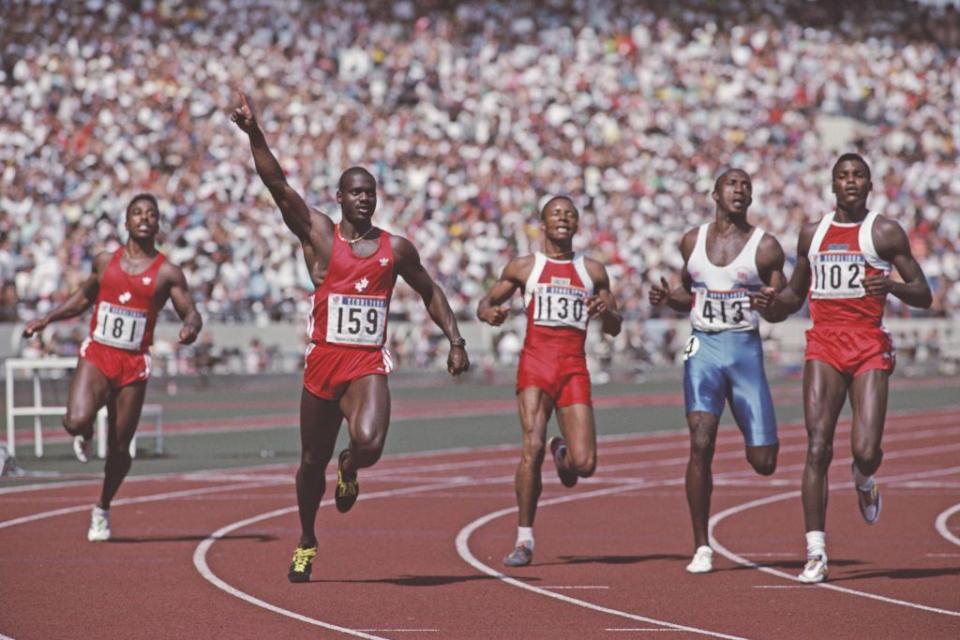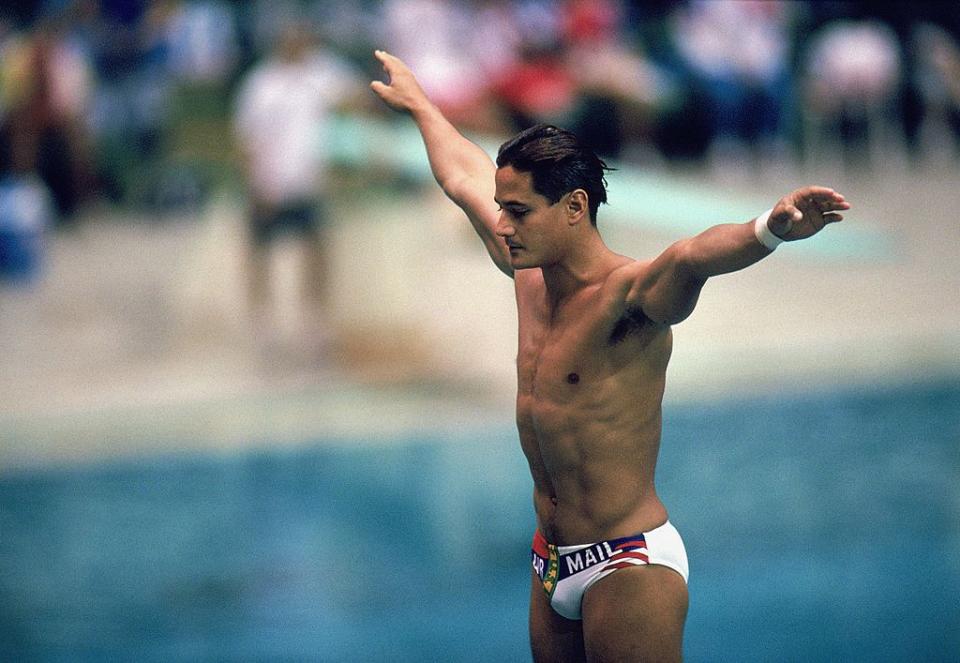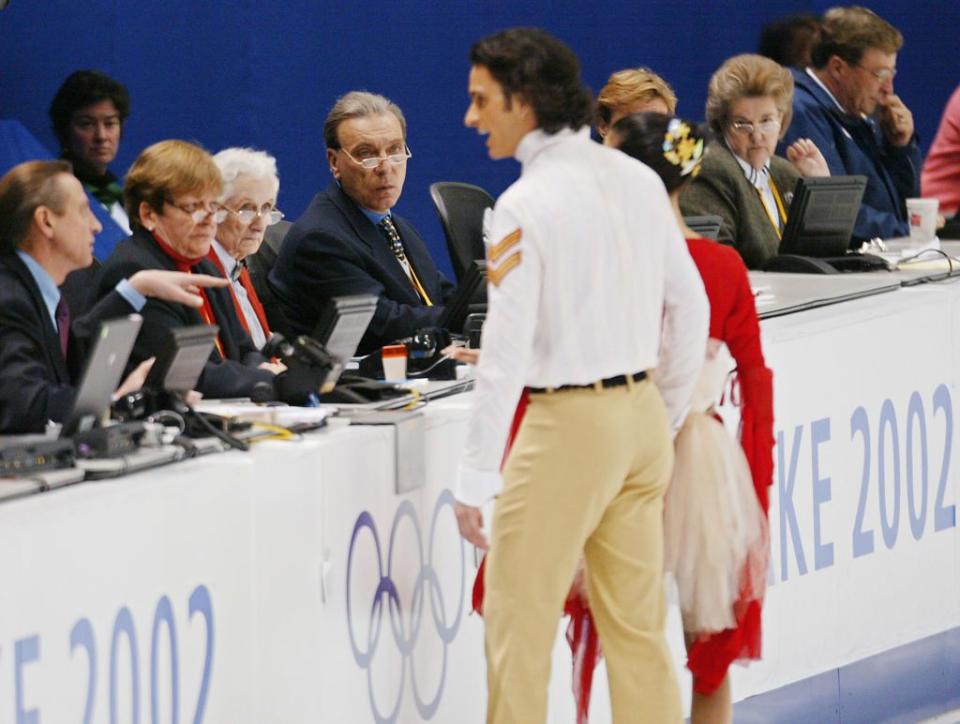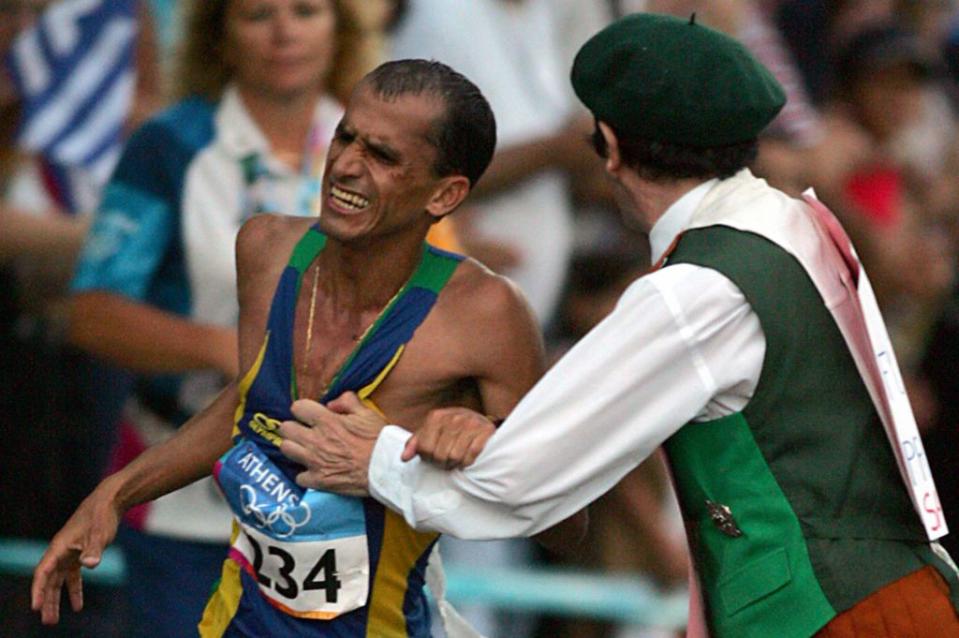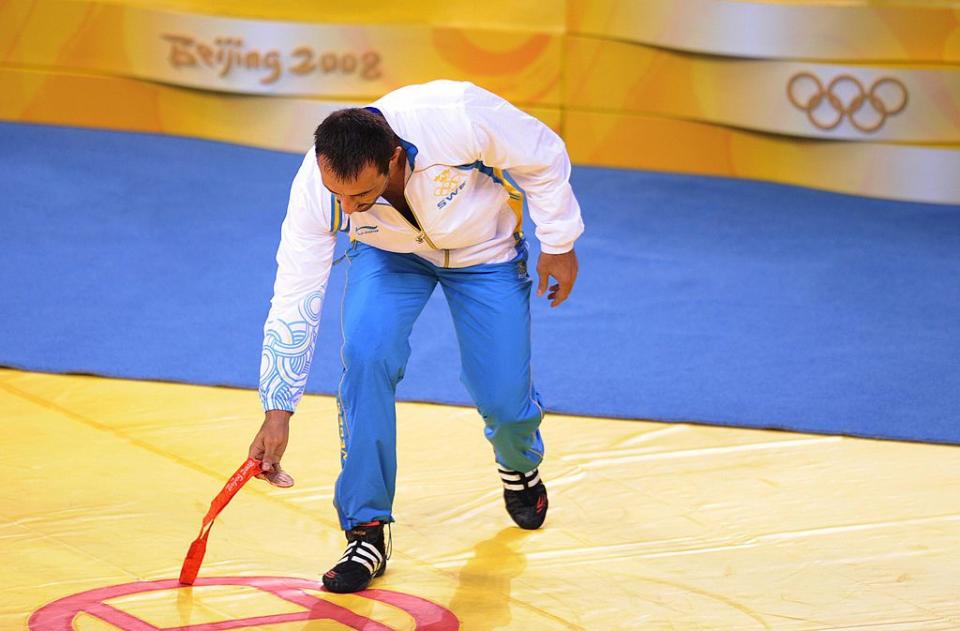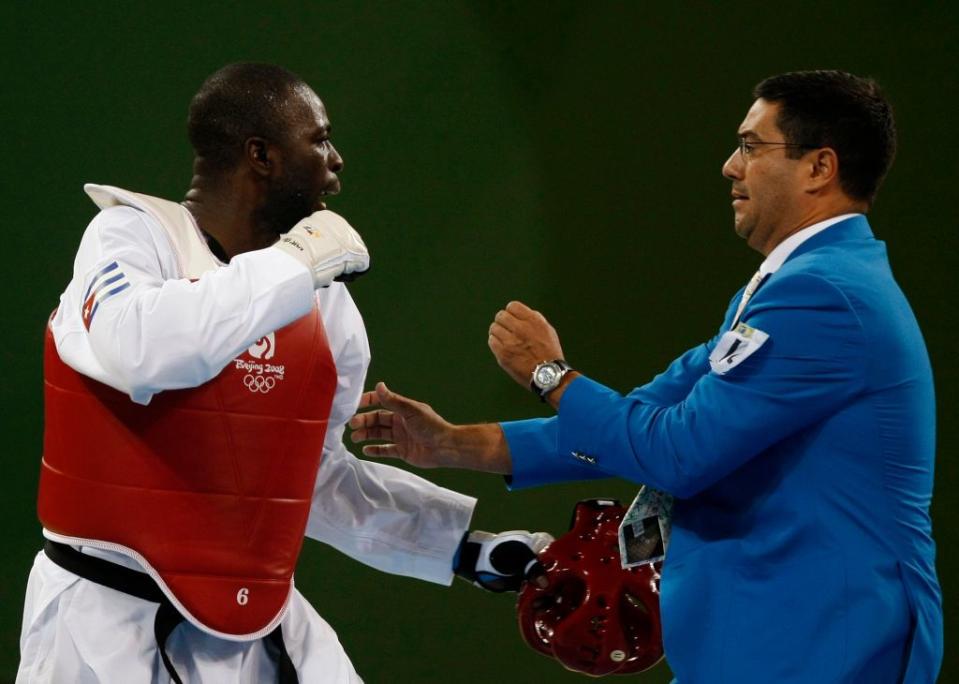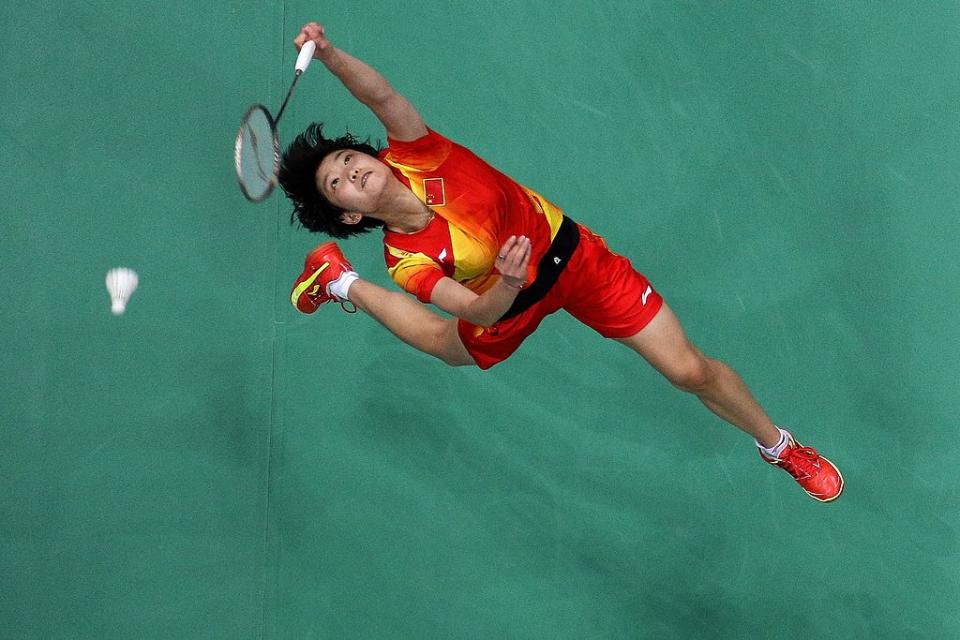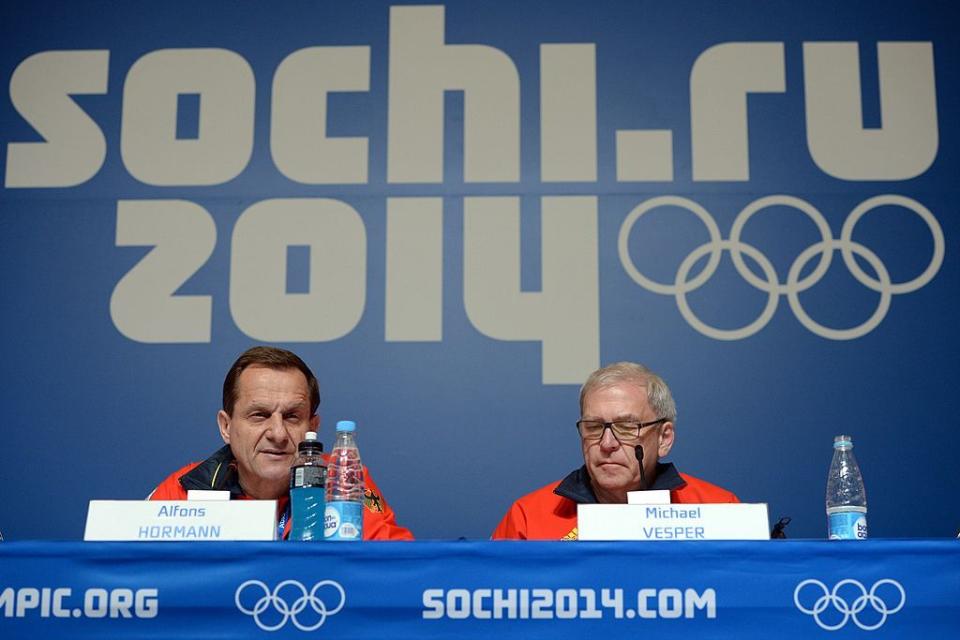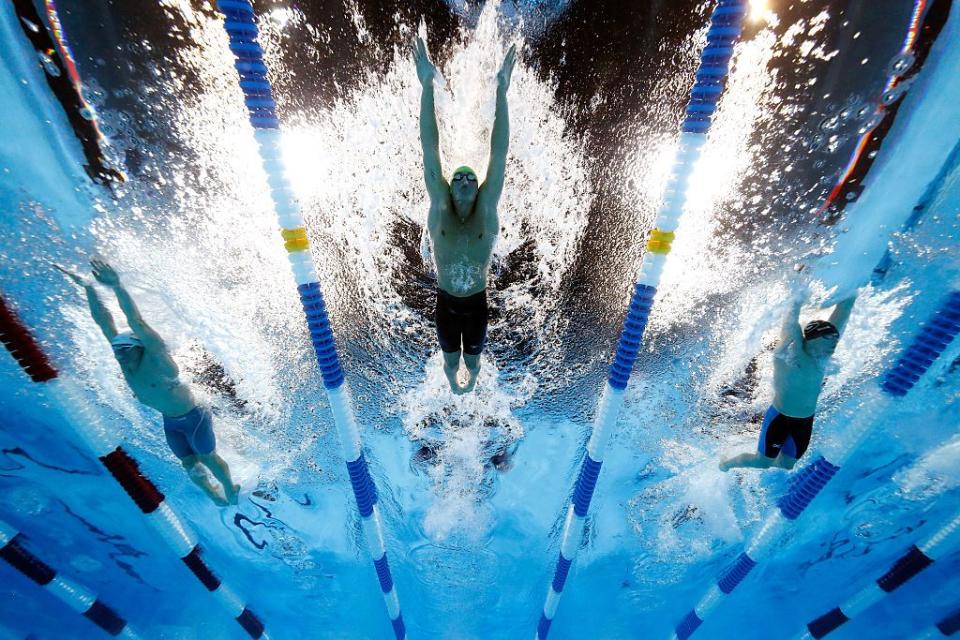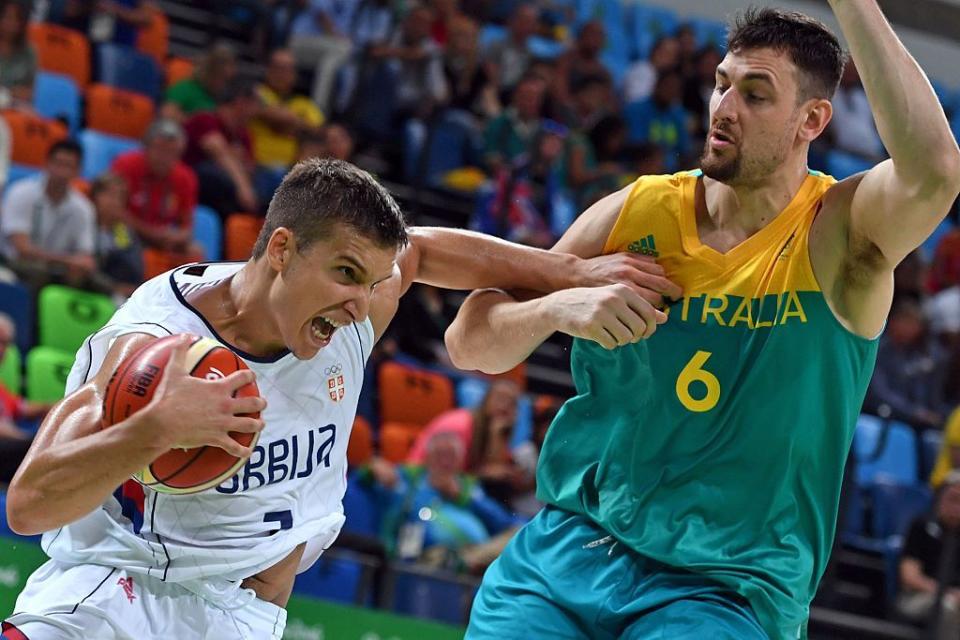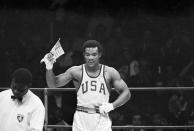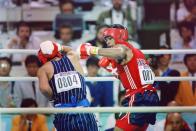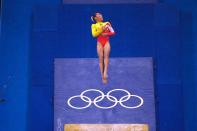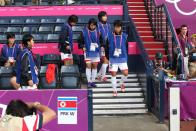The 39 Most Iconic Olympic Scandals Through History
- 1/40
The 39 Most Iconic Olympic Scandals Through History
Ever since the first Olympic Games were held in 1896, this international sporting tradition has been a source of awe and inspiration. More so than any other live event, the Olympics have a unique ability to draw audiences from across the world, and turn amateur athletes into global sensations overnight. But while the Olympics are unifying, heartening and endlessly entertaining, they’ve also been marred by their fair share of scandals over the years.
Given the high athletic stakes involved, global politics and the general popularity of the Olympics, it’s not surprising that these events are no stranger to conflict. All kinds of controversies have occurred throughout their history, from arrests, to hidden illnesses, violent attacks and cheating initiated by athletes, coaches and state-sponsored programs alike. Whether you lived through these iconic moments, or are just discovering them for the first time, revisiting past Olympic scandals reminds you of the highs and lows that make these sporting events such a significant cultural touchstone around the world.
picture alliance - Getty Images - 2/40
1908: Halswelle Wins 400m Gold
In 1908, American John Carpenter was disqualified from the 400 meter race for blocking British competitor Wyndham Halswelle, who attempted to pass him. A second race was scheduled, in which Halswelle would have faced two other American contenders, but they both boycotted the race to protest Carpenter's disqualification. As a result, Halswelle won gold in the only walkover in Olympics history.
Central Press - Getty Images - 3/40
1912: Jim Thorpe Stripped of Gold Medals
Jim Thorpe won gold in 1912 for both the pentathlon and decathlon. He was stripped of those medals a year later, when it was discovered that he had played minor league baseball professionally in 1909 and 1910. The medals were returned to him in 1982, 30 years after his death.
George Rinhart - Getty Images - 4/40
1932: Paavo Nurmi Banned From Competing
Known as one of the "Flying Finns," Paavo Nurmi was a decorated distance runner who won nine gold medals from 1920–1928. Hoping to compete in 1932, he was ultimately banned due to claims that he was no longer an amateur after receiving payment for a tour in 1925. Competitors pleaded that he be allowed to race, but were ignored.
Imagno - Getty Images - 5/40
1932: Bertil Sandström Demoted To Last Place
Another scandal occurred in 1932 when Swedish competitor Bertil Sandström was demoted to last place after receiving the silver medal in equestrian dressage. Officials claimed he was illegally "clicking" encouragement to his horse, meanwhile he maintained it was the creak of his saddle.
Europeana - 6/40
1956: "Blood In The Water" Match
At the 1956 Melbourne Olympics, a water polo match turned violent when Hungary's star player Ervin Zador got punched in the face by Russian opponent Valentin Prokopov. The incident has become symbolic of political tensions at the time resulting from the Hungarian struggle against Soviet rule.
Bettmann - Getty Images - 7/40
1968: George Foreman Waves American Flag
After two athletes performed the Black Power salute during the US anthem, George Foreman inadvertently made a statement by waving a small American flag following his heavyweight boxing win. Even though Foreman later commented that he simply wanted to identify his home country, critics accused him of being a "race traitor" at the time.
Bettmann - Getty Images - 8/40
1968: Jean-Claude Killy Sweeps Skiing Medals
French skier Jean-Claude Killy won triple gold in alpine skiing after a deeply controversial outcome in the slalom race. Fellow competitor and Austrian skier Karl Shranz claimed a mysterious man crossed his path during the race and caused him to skid to a halt. He was allowed a restart, beat Killy's time, but was later disqualified to make Killy the ultimate champion after all.
Bettmann - Getty Images - 9/40
1972: US Men's Basketball Team Loses
After the Munich Massacre, tensions high at the 1972 Olympics leading up to the stunning loss of the US Men's Basketball team. Though it appeared the American team had clinched the victory, the Soviets came out on top after the final seconds of the game were replayed several times. As an act of defiance against the calls that led to their defeat, the US team has refused to accept their silver medals to this day.
Bettmann - Getty Images - 10/40
1972: Marathon Imposter
American marathoner Frank Shorter was just a small distance from winning gold when a German imposter entered the stadium ahead of him. In an authentic outburst, ABC reporter Erich Segal shouted, "It's a fraud, Frank!," which is now one of the most iconic sports calls of all time.
ABC Photo Archives - Getty Images - 11/40
1976: Boris Onischenko Caught Cheating
Soviet athlete Boris Onischenko was sent home after he got caught cheating during the fencing portion of the modern pentathlon. It was discovered that his weapon had an elaborate wiring system that allowed him to register hits regardless of whether it connected with his opponent.
Bettmann - Getty Images - 12/40
1980: Władysław Kozakiewicz Gives "The Arm"
While Polish pole vaulter Władysław Kozakiewicz was attempting to break the world record in 1980, he was greeted by jeers from the primarily Russian crowed. When he finally succeeded, he gave "the arm" (a signal for a certain expletive) to the spectators and became an overnight sensation worldwide.
STAFF - Getty Images - 13/40
1984: Evander Holyfield Disqualified
American light-heavyweight boxer Evander Holyfield was a clear favorite to win gold in 1984. Many questioned the call that led to his defeat by New Zealander Kevin Barry, in which the referee disqualified him for making a hit after a break was ordered.
Bettmann - Getty Images - 14/40
1988: Ben Johnson Stripped of Gold Medal
Canadian sprinter Ben Johnson set a new world record of 9.79 seconds in the 100 meter event to win gold in 1988. He was sent home, however, when he tested positive for anabolic steroids and got his gold medal revoked.
Mike Powell - Getty Images - 15/40
1988: Park Si-Hun Defeats Roy Jones, Jr.
Park Si-Hun, the South Korean boxer who defeated American Roy Jones, Jr., to this day still wishes he had won silver instead. The result of the fight, which was decided by a 3-2 vote, remains one of the most controversial events in boxing history.
SUNKYU IM - Getty Images - 16/40
1988: Greg Louganis Diving Board Incident
American gold medalist Greg Louganis famously hit his head on a diving board during a preliminary Olympics round, but that wasn't the only setback he faced. He was also secretly suffering from AIDS at the time, and didn't reveal the condition until seven years later to avoid losing his chance to compete.
Pascal Rondeau - Getty Images - 17/40
1994: Nancy Kerrigan Attacked
It didn't take long for the mysterious attacker of figure skater Nancy Kerrigan to be connected to the ex-husband of fellow American skater Tonya Harding. The incident is so historic that it became the subject of the film I, Tonya.
picture alliance - Getty Images - 18/40
1998: Ice Dancing Judges Try to Pre-Ordain Results
When a 1998 ice dancing judge was caught on video attempting to rig the results, the integrity of the entire sport came under fire. IOC Vice President Dick Pound publicly expressed his disappointment at the blatant cheating, and urged the sport to be removed from the Olympics unless its reputation changed.
Wally McNamee - Getty Images - 19/40
1998: Ross Rebagliati Disqualified For Marijuana
Snowboarding made a controversial debut as an Olympic sport when its first gold medalist, Canadian athlete Ross Rebagliati, was disqualified following a routine drug test after the race. He failed due to the test showing traces of marijuana, was arrested and then re-awarded the gold medal after the court ruled this drug wasn't part of the banned list of substances.
Nathan Bilow - Getty Images - 20/40
2000: Women's Gymnastics Vault Set Low
Several women's gymnastics competitors suffered due to the vault being set two inches too low during the first two rotations of the competition. US Gymnastics President Bob Colarossi called it an "unthinkable error," and others agreed it was one of the most egregious mistakes in the history of the Olympics.
Clive Brunskill - Getty Images - 21/40
2000: Marion Jones Stripped of Medals
After she became the first female track and field athlete to win five medals in a single Olympics, American competitor Marion Jones fell from glory. In a pivot from her long period of denial, she admitted to using steroids before the games and was officially scrapped from the Olympic records.
Alexander Hassenstein - Getty Images - 22/40
2000: Dong Fangxiao Falsifies Age
Eight years after the 2000 Olympics, an investigation uncovered that Chinese gymnast Dong Fangxiao falsified her age during the competition. Her registration suggested she was 17 years old, when she was actually just 14 at the time. She had her bronze medal stripped away from her as a result.
Jed Jacobsohn - Getty Images - 23/40
2000: Andreea Răducan Stripped of Gold Medal
Romanian gymnast Andreea Răducan was stripped of her all-around gold medal when she tested positive for pseudoephedrine, a banned stimulant found in a cold medicine she had taken. She approached the IOC 15 years later to try to have her medal reinstated, and though she received sympathy, was unsuccessful.
Ross Kinnaird - Getty Images - 24/40
2002: Two Sets of Gold Medals in Pairs Figure Skating
Following accusations of collusion in favor of the Russian figure skating pair that ultimately won gold, a second pair of gold medals was awarded to the Canadian duo many thought were snubbed. Despite the "everyone's a winner" mentality, the skating community was scandalized and divided over the ordeal.
JACQUES DEMARTHON - Getty Images - 25/40
2002: Cross-Country Skiers Disqualified
Several cross-country skiers in 2002 ultimately lost medals and standing after they were found to have used performance enhancing drugs. One was Russian Larissa Lazutina, one of the most decorated athletes in Winter Olympics history.
Adam Pretty - Getty Images - 26/40
2004: Vanderlei de Lima Attacked
Brazilian runner Vanderlei de Lima was in the lead at the Olympic marathon in 2004 when a mentally ill bystander approached him and pushed him into the crowd. De Lima resumed running, but was overtaken two miles before the finish line to ultimately finish in third. Based on how he handled the incident, de Lima was later awarded the Pierre de Coubertin medal for sportsmanship.
AFP/Getty Images - Getty Images - 27/40
2004: Greek Sprinters Fake Motorcycle Crash
Kostas Kenteris and Katerina Thanou withdrew from the Athens Olympics after avoiding a drug test and subsequently faking their involvement in a motorcycle crash. Kenteris deeply disappointed his home country, as he was Greece's best hope to bring home track gold.
Ian Waldie - Getty Images - 28/40
2008: Ara Abrahamian Places Bronze Medal on Floor
Frustrated by the judging that led to his bronze medal, Swedish wrestler Ara Abrahamian threw it down it protest. As a result, he was stripped of that medal since the IOC ruled that it insulted fellow athletes and constituted a demonstration.
PETER PARKS - Getty Images - 29/40
2008: Ángel Matos Banned For Life
It's not uncommon for Olympic athletes to get angry at referees, but Cuban taekwondo athlete Ángel Matos took it a step further by kicking one square in the face. He was upset after getting disqualified from a bronze medal match, and his violent gesture got him banned from international taekwondo events for life.
BEHROUZ MEHRI - Getty Images - 30/40
2008: More Questions Raised About Gymnasts' Ages
Speculations about the ages of three Chinese gymnasts, Jiang Yuyuan, Yang Yilin and He Kexin, ran rampant at the 2008 games. Their youthful appearances ultimately sparked a New York Times investigation focusing on Kexin, whose birth records indicated she was just 14 at the time of the competition.
Al Bello - 31/40
2010: Security Breach Nearly Reaches Biden
A security scare occurred during the 2010 Olympics when a man suffering from mental illness used fake credentials to get inside the event and get close to Vice President Joe Biden. Police apprehended him from about 12 rows away, and while he briefly escaped police custody, no real damage resulted.
Jamie Squire - Getty Images - 32/40
2010: Canadian Women's Hockey Team Parties On Ice
Canada's women's hockey team celebrated their third consecutive gold medal with champagne and cigars, which was considered scandalous since they went back out on the ice and partied while in their uniforms. They had thought the rink was empty, and Hockey Canada issued an official apology for their actions.
Harry How - Getty Images - 33/40
2012: North Korean Football Team Delays Game
After an awkward flag mix-up, in which the South Korean flag was shown next to the North Korean women's soccer team in a video package, the North Korean team was upset. They refused to play for an hour, delaying the start of their match against Colombia.
Lynne Cameron - PA Images - Getty Images - 34/40
2012: Paraskevi Papachristou Expelled
Greek triple jumper "Voula" Papachristou never made it to the 2012 Olympics due to a series of racist Tweets and demonstrated support for far-right organizations on the social media platform. The Hellenic Olympic Committee ruled that the posts, which mocked African immigrants, should result in expulsion.
ADRIAN DENNIS - Getty Images - 35/40
2012: Eight Badminton Players Ejected From Tournament
Four women's badminton pairs, one from China, two from South Korea, and one from Indonesia, were barred from the tournament for intentionally throwing matches. It was part of a strategy to land a more favorable quarter-final placement, and violated the players' code on using best efforts.
Chris McGrath - Getty Images - 36/40
2012-2013: Rise and Fall of Oscar Pistorius
South African sprinter Oscar Pistorius became an instant inspiration in 2012 as the first double amputee to compete against able-bodied athletes at the Summer Olympics. That reputation was erased when he was found guilty of murder.
Michael Steele - Getty Images - 37/40
2014-2021: Russian Doping Scandal
In a scandal that is still unfolding, Russia has come under fire for a highly-organized, state-sponsored doping program between 2011 and 2015, as well as sample-tampering at the 2012 and 2014 Olympics. As a result, Russia will be banned from the Olympics in Tokyo in 2021, as well as the following Winter games.
JUNG YEON-JE - Getty Images - 38/40
2016: US Swimmers Vandalize Gas Station Bathroom
After claiming to have been robbed at gunpoint at a gas station in Rio de Janeiro, Ryan Lochte, along with fellow American swimmers James Feigen, Gunnar Bentz and Jack Conger, were proven to have fabricated the story. According to Brazilian police, the swimmers actually broke down the door of the gas station bathroom, then attempted to flee the scene.
Al Bello - Getty Images - 39/40
2016: Nine Australian Athletes Sneak Into Paid Seating
A group of Australian athletes were fined for altering their credentials at the semifinal basketball game between Australia and Serbia. While athletes typically get free seating, the group tried to access better seating in the paid section, and ultimately had to pay $3,100 each for the violation.
ANDREJ ISAKOVIC - Getty Images - 40/40
2018: Kei Saito Suspended Due to Doping
In the first doping violation of the 2018 Pyeongchang Games, Japanese speed skater Kei Saito was sent home due to a positive drug test.
Robert Cianflone - Getty Images

 Yahoo Movies
Yahoo Movies 

